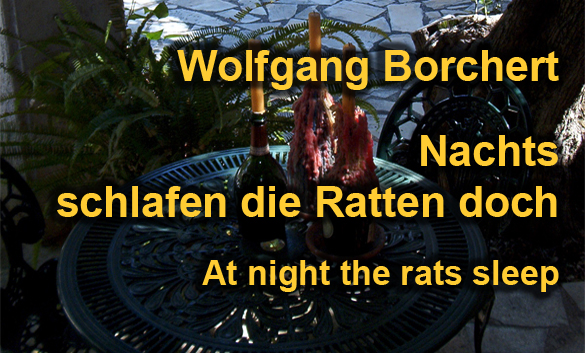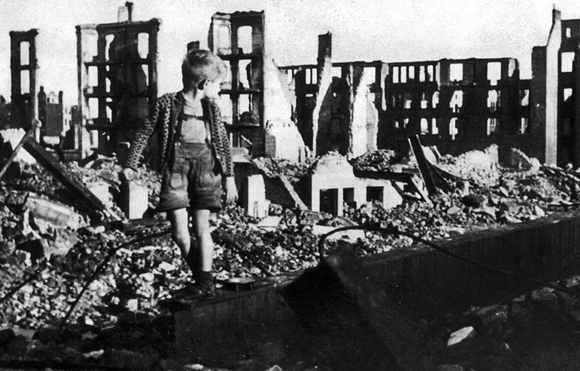

Hinweis für Smartphone-Nutzer: Diese Website läßt sich am besten auf einem großen Bildschirm betrachten und lesen.
Smartphone users please note: This website is best seen on a big screen.

 e were sitting in the Small Café, glancing over the empty tables, each of us already having a second espresso, and thinking about a sentence that had just fallen as an afterthought to Siegfried Ostrowski's descriptions of the Third Reich last summer:
e were sitting in the Small Café, glancing over the empty tables, each of us already having a second espresso, and thinking about a sentence that had just fallen as an afterthought to Siegfried Ostrowski's descriptions of the Third Reich last summer:
"And afterwards no one is guilty …" — neither the politicians and their collaborators, nor the lobbyists, the civil servants, the newspaper hacks, the university presidents and their lackeys, the company directors and the "silent majority" of the tacit supporters … afterwards the innocent bear the burden. Often, the guilty either disappear or have a soft landing under a new regime.
Wolfgang Borchert described this tragedy. He was a German writer who, after World War II, had become one of the best-known authors of the postwar period, writing short stories, poems and a play between January 1946 and September 1947. He died at the age of 26 as a result of injuries and infectious diseases contracted during the war.
"At Night the Rats Sleep" is an outstanding example of his work.




Please read the terms of use, legal information and other conditions. The automated analysis of the work in order to obtain information, in particular about patterns, trends and correlations ("text and data mining") is prohibited.